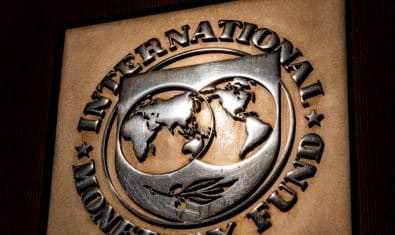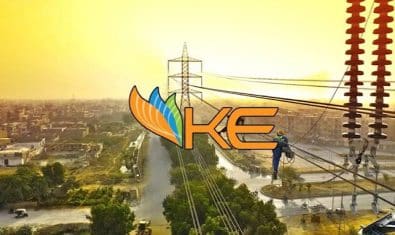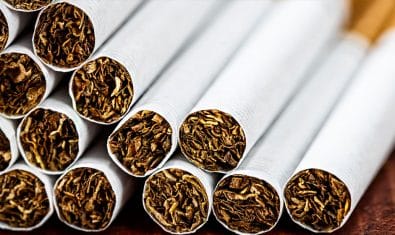Each year, animal rights advocates around the world observe 10 December as International Animal Rights Day, and strive to convince people that all sentient beings deserve to be treated with respect and kindness and respect.
Many people believe that animals are highly intelligent, have feelings, and can feel pain and a wide range of emotions just like human beings, which is why it is imperative to realize that like humans, animals deserve to have rights.
Pakistan’s first lawyer who holds an LL.M in Animal Law, Hira Jaleel, who is also a recipient of the Fulbright Scholarship, spoke exclusively to ProPakistani today about the importance of recognizing animal rights. She is currently an Animal Law Teaching Fellow at her alma mater, the Lewis & Clark Law School in Oregon, USA, where she also delivered lectures on International Animal Law and Animal Legal Philosophy.
“There’s no doubt anymore that animals are sentient beings, which means that they are capable of experiencing pain and suffering, and of experiencing positive and negative states of being. They have emotions and experiences, and very full and rich lives. They are hurt physically, emotionally, and psychologically by the harm we inflict on them,” she said.
Explaining the nature of animals, she added, “Science has come a long way since we used to think animals have no feelings, and now we know that is not true, even for invertebrates, fish, and crustaceans. In light of this, it is very hard to morally justify inflicting harm on animals, being cruel to them, or causing them pain and suffering when we know that they experience this pain and it impacts their lives, communities, and societies”.
Animals are very social and intelligent, and they have very strong familial bonds. They grieve when their loved ones die. They pass on generational knowledge. So, its crucial that we recognize that animals have real interests that deserve to be protected. We need to respect animals as part of our community and society, and extend to them the same the same dignity and respect that we afford to other vulnerable and defenseless segments of our society.
Jaleel affirmed that animals are not entrenched in Pakistan’s political or legal systems. She reasoned that just because they do not vote does not mean that they are not subject to or impacted by the things humans do. They are very actively used in all sorts of ways, some of them exceedingly cruel, such as hunting or being made to work, or used for breeding just to be sold, or chained up in homes or in terrible conditions, she remarked.
My view is that animals deserve to have their interests and some rights to bodily autonomy, to have the liberty to have their mental, behavioral, physiological states and interests recognized, respected, and protected.
Talking about how animals are treated the world over, Jaleel said that there is no perfect country that goes out of its way to respect animals. She believes that humanity, as a whole, is yet to reach that point.
“We have made great strides and there is a lot of dialogue on this issue both in Pakistan and internationally in this era that wasn’t happening before, about what we owe animals, how much moral consideration we need to afford them, what animals are hurt by, and which human actions unnecessarily hurt animals,” she remarked.
Animal Testing
Jaleel highlighted the example of animal testing, which she has found to be a relevant debate both in Pakistan and internationally.
“The world is coming to the recognition that a lot of animal testing for cosmetics and life-saving drugs is unnecessary, very cruel, and its results don’t always translate well into human trials because ultimately, animal anatomy is very different from ours,” she stressed.
We have so many ethical rules for testing on humans but not for animals. We just have the bare minimum for them, which is just to treat them humanely, but now people have started questioning the necessity and there is a movement toward the international principal of the three Rs – ‘Replace animals in testing, refine studies to eliminate the need for animal testing, and Reduce the number of animals needed for testing’.
Improving Efforts for Animal Rights in Pakistan
Jaleel noted that she has seen immense progress in Pakistan over the last five years because as compared to the stark lack of conversations on how to treat animals or the presence of animal welfare or rescue organizations when she was growing up.
“Now there are new ones cropping up every day, focusing on all sorts of issues. Every time there is animal abuse or something related to animals, social media picks it up, and even the media and legislators are talking about it more,” she pointed out.
Jaleel added, “Clearly, the Federal Government of Pakistan is now paying more attention to animal welfare for the first time in our history, which is an amazing thing, and we definitely need more of it”.
“Pakistan is certainly late,” she smiled and added,
Because our anti-cruelty law is from 1890, which means it’s a colonial law and nobody has ever thought of amending it.
She is considerate of the work on animal rights that has been picking up the pace in recent years and remarked, “Whether it is as a front of educating children, amending the law, opening shelters, or even what our courts are doing, we have had some amazing and progressive, internationally-lauded judgments in the last two or three years, as in Kaavan’s case and the relocation of the animals at the Marghazar Zoo to foreign sanctuaries. I’m glad that this is happening”.
The Link Between Children, Violence, and Animal Abuse
The federal government launched Pakistan’s first Animal Welfare Curriculum for schools in Islamabad yesterday and it hopes to extend it to all the provinces soon.
Jaleel attended the meeting for the launch online and weighed in on its importance with this scribe. She said that studies have proven a link between human violence and animal abuse.
Often when children abuse animals, there are two aspects of it. One is that they may be being abused at home, as both children and animals are vulnerable beings, and a lot of time, abuse is more about power than anything else. So when a child is experiencing abuse and cannot speak up and has no one to turn to, the child will just take it out on someone more vulnerable, which is an animal who also can’t speak up, turn to anyone, or protect itself.
She explained that animal abuse by a child can be an indicator of abuse that they are experiencing.
“In the long run, when then the child grows up, several studies show that a lot of violent offenders start off by abusing animals, which escalates to human beings,” she said.
“So, nipping it in the bud, teaching compassion, and identifying signs of animal abuse are important, and it’s crucial to reform society as a whole,” Jaleel expounded.
Animal Rights vs. Human Rights
Jaleel also spoke about the popular argument and remarked,
When people say ‘why talk about animal rights when we don’t have human rights?’, my response is ‘we’re never going to have human rights if we don’t protect animals because how society and the government and people treat each other is a reflection of how they feel members of society as a whole should be treated. If someone cannot acknowledge that an animal, who is a vulnerable being, deserves to be protected and treated with respect, then they will never be able to have the same empathy or sympathy for a human being.
In light of this, she considers the argument that animal protection and rights equate to compromising on human rights to be “an absolutely false dichotomy”.
She concluded, “You can’t have one without the other. Societies all over the world that pay attention to human rights generally also pay attention to human rights and vice versa. So, I consider it very important to expose young children to compassion for animals, and treating them as sentient living beings who are worthy of respect, dignity, and kindness. It’s [the Animal Welfare Curriculum] is a great step in that direction”.
Read more about Hira Jaleel here.



























Sana and Hira are truly gorgeous 😍